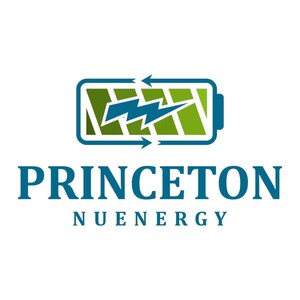BORDENTOWN, N.J., Sept. 8, 2023 /PRNewswire/ -- Princeton NuEnergy Inc. ("PNE", "company") is pleased to announce its recent selection as a recipient of a $4.375 million grant ($3.5 million federal cost share and $0.875 million recipient cost share) from the U.S. Department of Energy ("DOE") and The Office of Energy Efficiency and Renewable Energy (EERE) through DE-FOA-0002864. This prestigious grant underscores PNE's commitment to advancing the field of battery materials and technology, specifically focusing on advanced Cathode Active Materials (CAMs) manufacturing and enhancing manufacturing competitiveness through groundbreaking technological progress. This achievement marks a significant milestone for PNE as it represents their fourth award from DOE in recognition of their relentless pursuit of excellence in battery innovation.
The grant under EERE's Advanced Materials and Manufacturing Technologies Office (AMMTO) supports three strategic domains: Next Generation Materials and Manufacturing, Secure and Sustainable Materials, Energy Technology Manufacturing, and Workforce Development, reinforcing PNE's pivotal role in driving transformative change in the energy landscape to increase domestic competitiveness and help build a clean, equitable energy economy.
Dr. Jinyun (Jared) Liao, Director of R&D at PNE and Principal Investigator (PI) of this project, expressed the significance of the DOE funding, stating, "DOE funding is crucial to forming such a highly complementary team across the nation to work on a single target and create synergies that cannot be achieved with single-PI grants."
PNE, Princeton Plasma Physics Laboratory, Argonne National Laboratory, and Princeton University will collaborate closely to revolutionize advancements in Cathode Active Materials manufacturing. By leveraging PNE's existing low temperature plasma technology in direct recycling of lithium-ion batteries, the joint project led by PNE is aiming to develop a warm plasma-assisted process for cost-effective manufacturing of high-energy and high-quality CAMs. This cutting-edge initiative is designed to yield a trifecta of benefits, enabling electric vehicles to achieve reduced battery pack mass and volume at a lower cost, improved battery safety standards, and ultimately fostering the rapid adoption of commercial electric vehicles. In parallel, these transformative efforts align with broader objectives to reduce U.S. oil dependence and curb greenhouse gas emissions.
PNE's visionary pursuits are closely aligned with the overarching goal of building a clean and equitable energy economy, leading the way with more efficient, lower-cost solutions. This significant achievement marks a stride towards the realization of the Biden Administration's ambitious goals, aiming to achieve carbon pollution-free electricity by 2035, ultimately positioning the United States on a resolute trajectory towards a net-zero emission economy by no later than 2050. For the official announcement from the U.S. Department of Energy, please visit the DOE's official website for more information.
About Princeton NuEnergy
Princeton NuEnergy (PNE) is a U.S.-based, innovative clean-tech company founded out of Princeton University in 2019, launching pilot production in 2022 as the first end-to-end, production-scale direct lithium-ion battery recycling line in the U.S. PNE is quickly revolutionizing the critical materials supply chain with its patented direct recycling technology for lithium-ion batteries. PNE's patented low temperature plasma-assisted separation process (LPAS™) produces battery-grade cathode and anode materials suitable for direct reintroduction into cell manufacturing. PNE's direct recycling process delivers recycling efficiency rates of over 95%, exceptional ESG performance, at half the cost and a much lower environmental footprint vs. conventional methods.
For media inquiries, please contact:
Arsalan Khan
[email protected]
SOURCE Princeton NuEnergy

WANT YOUR COMPANY'S NEWS FEATURED ON PRNEWSWIRE.COM?
Newsrooms &
Influencers
Digital Media
Outlets
Journalists
Opted In






Share this article